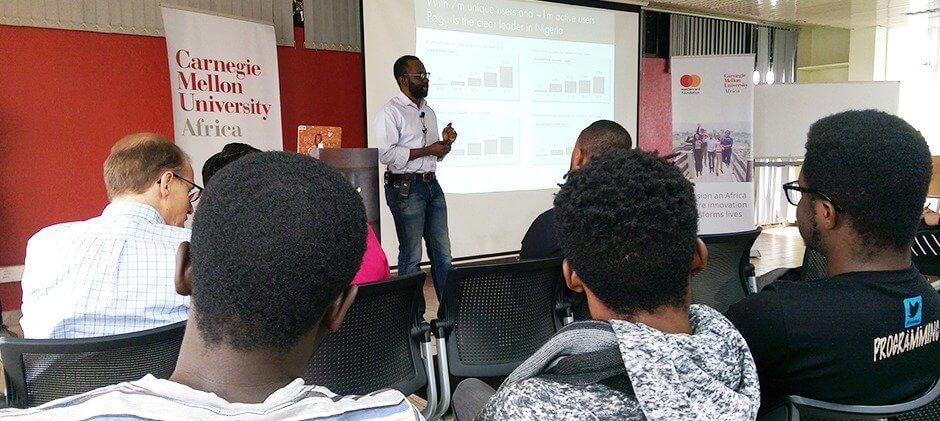I’m on sabbatical from Cardinal Peak right now, teaching at Carnegie Mellon’s Africa campus in Kigali, Rwanda. Aside from the fun I’ve had being in another culture and in an academic environment, it’s been great to see how a world class university like CMU educates graduate students in ECE and IT overseas.
CMU’s Rwanda program has over 100 students, all of whom are working on MS degrees. The students are mostly, but not exclusively, from East African countries, and survived a rigorous admissions process to get in. All instruction is in English. Although the students are initially quiet in class, and inherently more respectful than I’ve experienced elsewhere, with a bit of coaxing they loosen up and actively participate in discussions. They never hesitate to come to office hours, and I really enjoy the productive one-on-one interactions we have.

The campus is small: It currently occupies two floors of a six-story building known as the Telecom house, but will move to a new site in 12-18 months with more room. The current campus has several classrooms, as well as labs with computers, EE gear, and IT equipment, but having more space will be good.
My data compression class has students from Rwanda, Togo, and Uganda. I also guest taught four lectures for the stochastic processes class and met students from Ethiopia and Kenya. Not so long ago these countries seemed like exotic foreign places to me, but now I associate them with hard-working students, enthused by entrepreneurship, who are eager to make a difference – they all want to start a company.
My class has been a mixture of theory and practice. We did enough information theory to prove Shannon’s noiseless coding theorem and to understand why Huffman coding and arithmetic coding work. We’ve looked at optimal quantizer design, VQ, and entropy-constrained quantization. Most recently we studied linear prediction for WSS processes and saw how the results apply to inter-frame video coding and to DPCM in general. Future topics will include a review of human aural and visual perception, and compression methods that exploit how we perceive: transform coding for video and sub-band coding for audio.
I’ve always had a high opinion of CMU (after all, my co-founder Howdy Pierce is a graduate!), and my opinion is even higher now. In closing I just have to mention a few of the excellent faculty I’ve met and thank them for their help as I settled in:
- Aminata Garba (communications and information theory), from Niger, who recently received a Next Einstein Forum fellowship.
- Patrick McSharry (data science), a visiting professor from Oxford and a Fellow of the Royal Statistical Society.
- Edwin Mugume (telecommunications), from Uganda, who is teaching here one semester before returning to Makerere University in Uganda.
- David Vernon (cognitive systems), who has extensive teaching experience including in Ireland, Germany, Sweden, and the Middle East.
